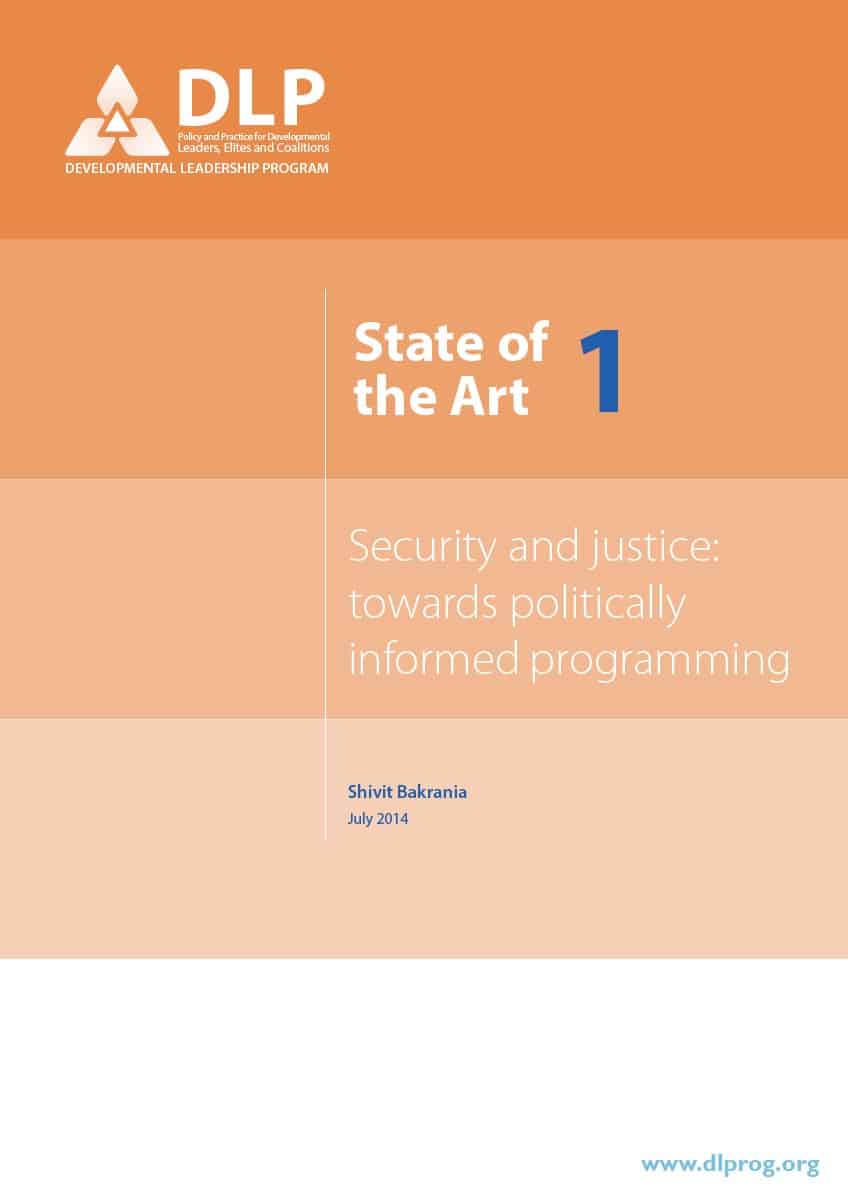There is a consensus amongst academics and practitioners that security and justice are intrinsically political. When providing assistance in this sector, donors are engaging with the fundamentally political nature of the state. This paper therefore explores what the literature tells us about the following questions:
- How do politics and power intersect with the provision of security and justice?
- What are the politics of security and justice programming?
- How can donors work more politically and effectively in the area of security and justice assistance?
The paper notes that the evidence base for security and justice programming is weak and normative, presenting recommendations with little empirical evidence about what works.
Key findings
- Security and justice are core functions of the state, central to state-society relations, and are deeply political and contested.
- The provision of security and justice is multi-layered. The relationships, linkages and tensions between different actors operating at different levels are key to understanding the nature of politics and power in security and justice provision.
- The nature and control of decision-making processes can determine the responsiveness of provision to the needs of citizens. In many fragile and conflict-affected states, nepotism, patronage and corruption tend to exclude segments of the population, and hinder inclusive decision-making.
- Despite acknowledging the importance of a politically nuanced approach to programming, donor assistance remains overly technical and state-centric. This is widely referred to as the ‘policy-practice gap’.
Principles
The literature suggests principles to help donors work politically. These focus on considering tensions between the interests of elites and citizens, and integrating political dynamics into programme design. Proposals include:
- Engaging with elites in a negotiated partnership
- Understanding the context and acknowledging local realities and power relations
- Negotiating the politics of legal pluralism, ensuring that support for state and non-state actors are linked
- Ensuring that practitioners have competencies for working politically
- Ensuring that assistance is pragmatic and flexible
- Ensuring robust programme design, monitoring and evaluation.
Download the full paper below or see the brief









